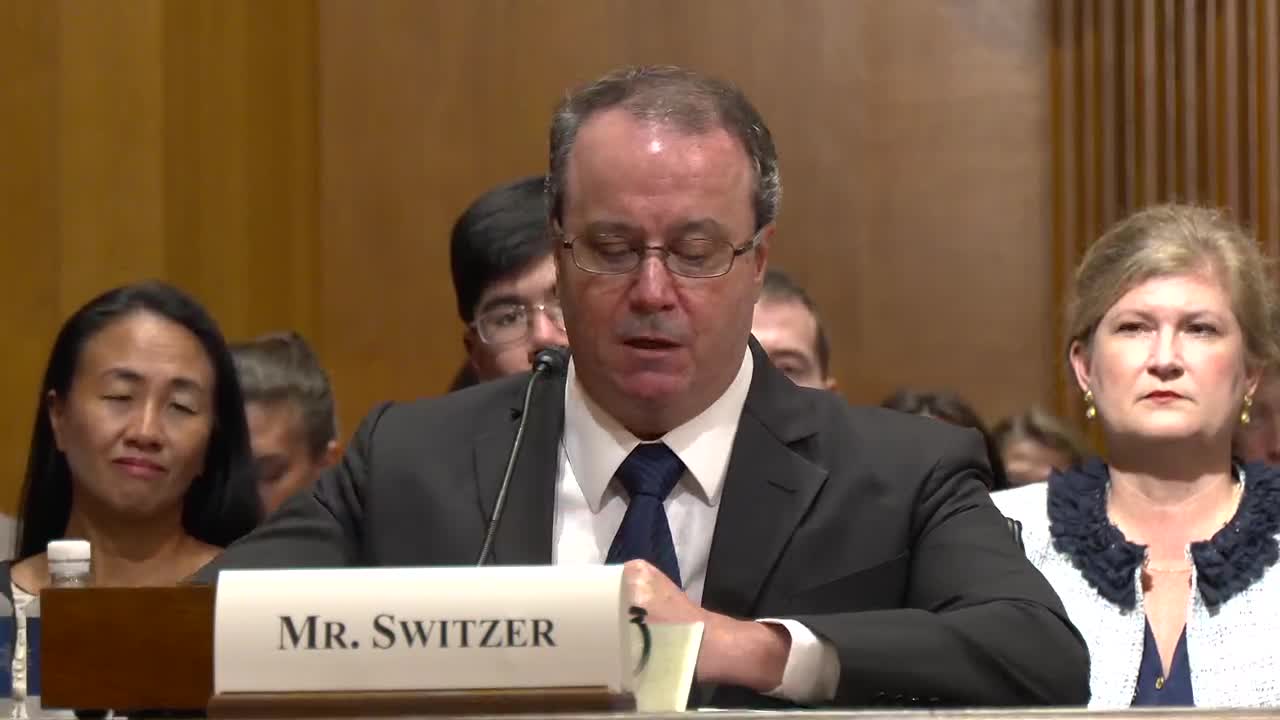US Trade Official Advocates Reform for Fair Global Trade Practices
July 31, 2025 | Finance: Senate Committee, Standing Committees - House & Senate, Congressional Hearings Compilation
This article was created by AI summarizing key points discussed. AI makes mistakes, so for full details and context, please refer to the video of the full meeting. Please report any errors so we can fix them. Report an error »

In a pivotal meeting of the U.S. Senate Committee on Finance, discussions centered on the urgent need for reform in the international trading system, a framework that has long been shaped by the United States and its allies. The backdrop of this conversation was a stark acknowledgment of the challenges faced by many Americans, particularly those in the middle class, who have felt the sting of unfair trading practices from major global partners.
The meeting featured a nominee who emphasized the importance of placing the American economy and worker at the forefront of trade policies. Drawing from two decades of experience in government, including senior roles at the Department of State and the Department of Defense, the nominee articulated a vision for trade that intertwines economic interests with national security. "Trade policies must ensure that America's producers, not just our consumers, benefit from global commerce," they stated, highlighting the need for reciprocal access and higher labor and environmental standards.
The nominee also pointed to recent vulnerabilities in global supply chains, particularly in critical sectors like semiconductors and pharmaceuticals. They argued that economic resilience should be treated as a core pillar of national security, advocating for trade agreements that bolster the U.S. economy while reducing reliance on adversarial nations.
As the committee deliberated, the nominee underscored the necessity of interagency coordination and collaboration with Congress to craft a trade agenda that not only promotes economic prosperity but also supports industrial strength and technological leadership. "Trade is not an end in itself," they noted, but a vital tool for achieving broader goals of stability and growth for all Americans.
The discussions at this hearing reflect a critical moment in U.S. trade policy, as leaders seek to navigate a complex global landscape while ensuring that the benefits of trade are felt by all citizens. The commitment to reform and strategic engagement with allies signals a renewed focus on making American trade practices fairer and more resilient in the face of evolving challenges.
The meeting featured a nominee who emphasized the importance of placing the American economy and worker at the forefront of trade policies. Drawing from two decades of experience in government, including senior roles at the Department of State and the Department of Defense, the nominee articulated a vision for trade that intertwines economic interests with national security. "Trade policies must ensure that America's producers, not just our consumers, benefit from global commerce," they stated, highlighting the need for reciprocal access and higher labor and environmental standards.
The nominee also pointed to recent vulnerabilities in global supply chains, particularly in critical sectors like semiconductors and pharmaceuticals. They argued that economic resilience should be treated as a core pillar of national security, advocating for trade agreements that bolster the U.S. economy while reducing reliance on adversarial nations.
As the committee deliberated, the nominee underscored the necessity of interagency coordination and collaboration with Congress to craft a trade agenda that not only promotes economic prosperity but also supports industrial strength and technological leadership. "Trade is not an end in itself," they noted, but a vital tool for achieving broader goals of stability and growth for all Americans.
The discussions at this hearing reflect a critical moment in U.S. trade policy, as leaders seek to navigate a complex global landscape while ensuring that the benefits of trade are felt by all citizens. The commitment to reform and strategic engagement with allies signals a renewed focus on making American trade practices fairer and more resilient in the face of evolving challenges.
View full meeting
This article is based on a recent meeting—watch the full video and explore the complete transcript for deeper insights into the discussion.
View full meeting